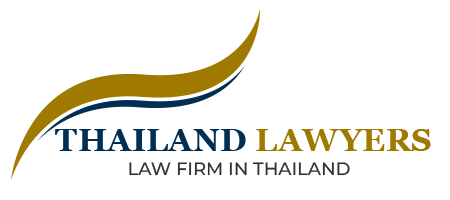Property mortgages in Thailand are a practical solution for individuals seeking to finance the purchase of property, particularly for Thai nationals and expatriates with specific qualifications. While foreign nationals face limitations in accessing traditional mortgages due to restrictions on land ownership, there are viable options for condominiums and properties through local banks and international financing. Understanding the eligibility criteria, loan structures, and regulatory framework is essential to navigate the Thai mortgage market effectively.
1. Overview of Property Mortgages in Thailand
A mortgage in Thailand is a secured loan where the property serves as collateral. Local banks and financial institutions primarily offer mortgages to Thai nationals, with stricter requirements for foreigners. Common use cases include:
- Financing residential property purchases (houses, condominiums).
- Funding real estate investments.
- Refinancing existing property loans.
Thai banks assess mortgage applications based on income stability, creditworthiness, and the property’s appraised value.
2. Eligibility for Mortgages in Thailand
a) For Thai Nationals
Thai citizens enjoy relatively straightforward access to mortgages, subject to employment history, credit records, and debt-to-income ratios.
b) For Foreign Nationals
Foreigners face additional challenges due to ownership restrictions and stricter lending criteria. Key eligibility considerations include:
- Residency: Foreigners holding long-term visas (e.g., work permits, permanent residency) may be eligible for mortgages.
- Property Type: Mortgages are generally limited to condominium units, as foreign land ownership is restricted.
- Income Requirements: Proof of stable income, often through Thai employment, is essential.
- Local Bank Accounts: Some banks require foreign borrowers to maintain accounts in Thailand with regular income deposits.
3. Types of Property Mortgages
Thai banks offer various mortgage structures tailored to individual needs:
a) Fixed-Rate Mortgages
These loans feature a consistent interest rate for an initial period, often 1-3 years, after which a variable rate applies. Fixed-rate mortgages provide predictability for short-term financial planning.
b) Variable-Rate Mortgages
Interest rates fluctuate based on market conditions, typically tied to the Minimum Loan Rate (MLR) set by the Bank of Thailand. These mortgages may result in lower payments when rates decrease but carry the risk of higher costs when rates rise.
c) Balloon Payment Mortgages
Borrowers make smaller monthly payments with a large final payment due at the loan’s end. This structure is suitable for those anticipating significant future income.
d) International Financing
For foreigners, international banks in their home country or regions like Singapore and Hong Kong may provide financing for Thai property, subject to different terms and interest rates.
4. Loan Application Process
The mortgage application process involves several steps:
a) Pre-Approval
Applicants submit documents such as proof of identity, income statements, and credit history to the bank for initial assessment.
b) Property Valuation
The bank appraises the property to determine its market value and establish the loan-to-value (LTV) ratio. For Thai nationals, LTV ratios typically range from 80-95%, while for foreigners, it may be lower, around 50-70%.
c) Loan Approval
Once approved, the applicant receives the loan offer detailing the interest rate, repayment schedule, and terms.
d) Property Transfer
At the Land Department, the mortgage and property title are registered, finalizing the loan arrangement.
5. Costs Associated with Mortgages
Borrowers should account for various costs when applying for a mortgage:
- Down Payment: Typically 20-30% of the property value, higher for foreign nationals.
- Loan Processing Fees: Ranging from 0.5-1% of the loan amount.
- Mortgage Registration Fee: 1% of the loan value, payable to the Land Department.
- Insurance: Banks often require property insurance and life insurance linked to the loan.
6. Key Challenges and Considerations
a) Ownership Restrictions
Foreigners can only secure mortgages for condominiums where foreign ownership does not exceed 49% of the total units.
b) Currency Exchange Risks
For foreign borrowers repaying loans in foreign currency, fluctuations in exchange rates can significantly affect repayment amounts.
c) Interest Rate Variability
Thai mortgage interest rates can be higher than in many Western countries, with variable rates subject to market changes.
d) Legal and Language Barriers
Loan agreements are often in Thai, requiring expert legal review to ensure transparency and understanding of terms.
7. Benefits of Mortgages in Thailand
Despite challenges, mortgages provide several advantages:
- Access to Property: Enables homeownership or investment without requiring full payment upfront.
- Financial Leverage: Allows borrowers to use their capital for other investments or expenses.
- Ownership Security: For Thai nationals, mortgages provide a pathway to owning land or homes outright.
Conclusion
Property mortgages in Thailand are a valuable financial tool for purchasing real estate, though foreign nationals face stricter eligibility criteria. By understanding the mortgage structures, costs, and legal implications, borrowers can make informed decisions and secure favorable terms. Consulting with financial and legal experts ensures compliance and clarity, helping navigate the Thai mortgage market effectively.

